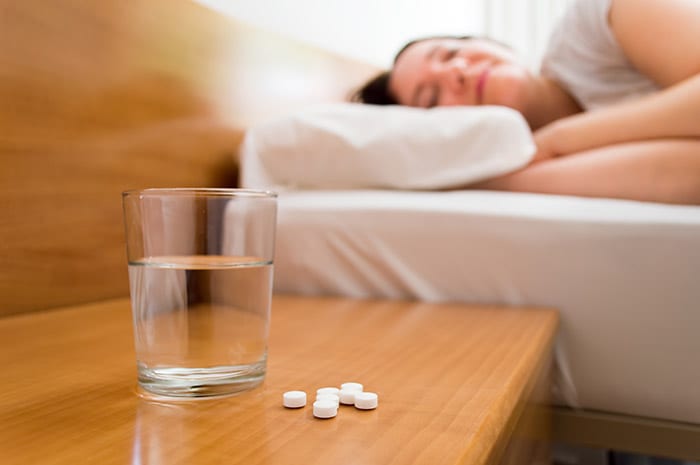Introduction
In our fast-paced modern world, many people struggle with sleep disturbances such as difficulty falling asleep, staying asleep, or experiencing restful sleep. Over-the-counter (OTC) sleep aids have become a popular solution due to their easy availability and perceived safety. However, what often starts as a short-term aid can evolve into a challenging dependency trap. OTC sleep medication dependency can disrupt natural sleep patterns, cause physical and psychological challenges, and significantly impact quality of life.
This article explores the types of OTC sleep aid dependencies, the development of tolerance and rebound insomnia, patterns of physical versus psychological dependence, withdrawal symptoms and their timeline, and evidence-based tapering and recovery strategies. Understanding these factors is essential for those looking to regain natural, restorative sleep without reliance on medication.
Types of OTC Sleep Aid Dependencies
OTC sleep aids commonly include antihistamines (like diphenhydramine or doxylamine) and herbal supplements (such as melatonin or valerian root). Dependency can develop in different ways:
- Antihistamine Dependency: Many OTC sleep aids contain antihistamines that cause sedation as a side effect. With repeated use, users may develop a need for increasing doses to achieve the same effect, leading to physical tolerance and dependency.
- Psychological Dependency on Herbal Supplements: While generally considered safer, herbal remedies can still foster a psychological reliance where individuals feel unable to sleep without them, even if physiological dependence is absent.
Dependency on OTC sleep aids often arises because users rely on these substances to cope with stress, anxiety, or poor sleep hygiene rather than addressing underlying causes.
Tolerance Development and Rebound Insomnia
Tolerance Development
Tolerance occurs when the body becomes accustomed to the drug’s effects, requiring larger or more frequent doses to induce sleep. For antihistamines, tolerance may develop within days or weeks of regular use.
Rebound Insomnia
When OTC sleep aids are discontinued abruptly, users can experience rebound insomnia—a worsening of sleep difficulties beyond the initial problem. This occurs as the body readjusts to sleeping without pharmacological assistance, often leading to frustration and relapse.
Physical vs. Psychological Dependence Patterns
- Physical Dependence: Seen more commonly with antihistamine-containing OTC sleep aids, physical dependence manifests as withdrawal symptoms and the body’s physiological need for the drug to maintain sleep.
- Psychological Dependence: More common with herbal supplements and perceived “need” for the aid, psychological dependence includes anxiety about sleeping without the medication, and habitual use tied to bedtime rituals.
Both types of dependence can coexist, complicating recovery.
Withdrawal Symptoms and Timeline
Withdrawal symptoms vary depending on the substance and duration of use, but often include:
- Difficulty falling or staying asleep (rebound insomnia)
- Restlessness and irritability
- Anxiety or mood disturbances
- Headaches or mild gastrointestinal upset (less common)
The worst symptoms typically last 3–7 days, but sleep patterns may take several weeks to normalize.
Evidence-Based Tapering and Recovery Programs
Effective recovery from OTC sleep aid dependency involves:
- Gradual Tapering: Slowly reducing the dose or frequency of the OTC sleep aid minimizes withdrawal symptoms and rebound insomnia. This tapering can be guided by a healthcare professional.
- Cognitive Behavioral Therapy for Insomnia (CBT-I): The gold standard non-drug treatment that addresses behaviors and thoughts that interfere with sleep.
- Sleep Hygiene Improvements: Establishing consistent bedtime routines, avoiding stimulants, managing stress, and optimizing sleep environment.
- Support Groups or Counseling: Psychological support can assist with anxiety and habits related to dependence.
Combining tapering with behavioral strategies improves long-term sleep quality and reduces relapse risk.
Conclusion
OTC sleep aids may seem like a harmless shortcut to better sleep, but they can lead to a complex dependency trap involving both physical and psychological factors. Understanding the nature of tolerance, rebound insomnia, and withdrawal symptoms is critical for anyone seeking to overcome this challenge. Evidence-based tapering protocols combined with behavioral therapies such as CBT-I offer the best chance for recovery, allowing individuals to reclaim natural, restful sleep and break free from reliance on medications. With patience and professional guidance, overcoming OTC sleep aid dependency is achievable.
FAQs:
Can you become addicted to melatonin or other OTC sleep aids?
Melatonin isn’t addictive, but psychological dependence can develop; antihistamine-based sleep aids can cause physical dependence with prolonged use.
What are the withdrawal symptoms when stopping sleep aids?
Rebound insomnia, irritability, anxiety, restlessness, and sometimes headaches.
How do I gradually reduce my dependence on OTC sleeping pills?
Taper the dose slowly over weeks, reducing frequency or amount with medical guidance, while improving sleep habits.
Why do I sleep worse when I don’t take my usual sleep aid?
Rebound insomnia occurs as your body adjusts, causing temporary worsened sleep without the medication.
What are effective non-medication approaches to improve sleep naturally?
Cognitive Behavioral Therapy for Insomnia (CBT-I), consistent sleep schedules, reducing screen time before bed, relaxation techniques, and optimizing sleep environment.






